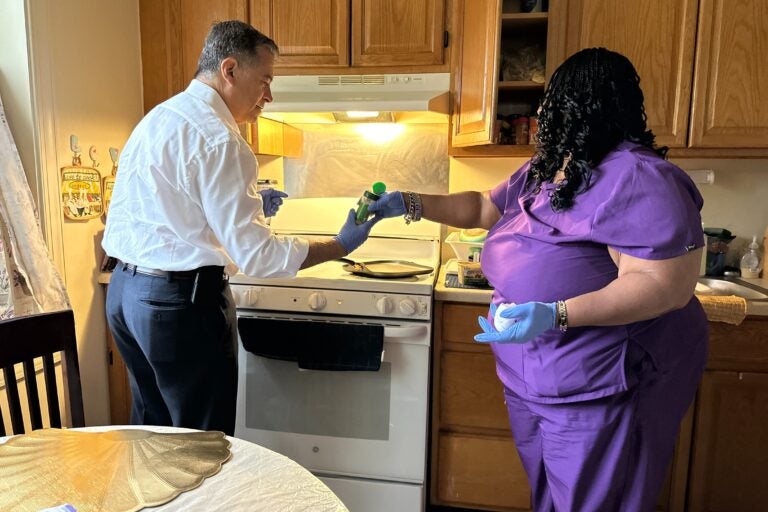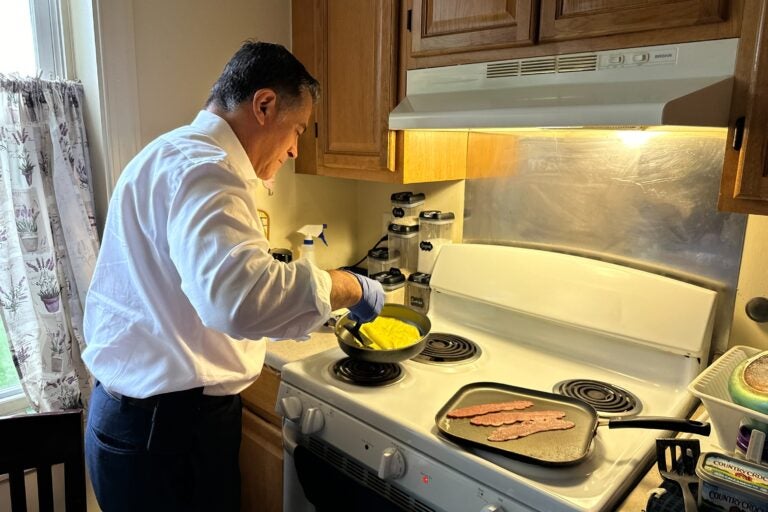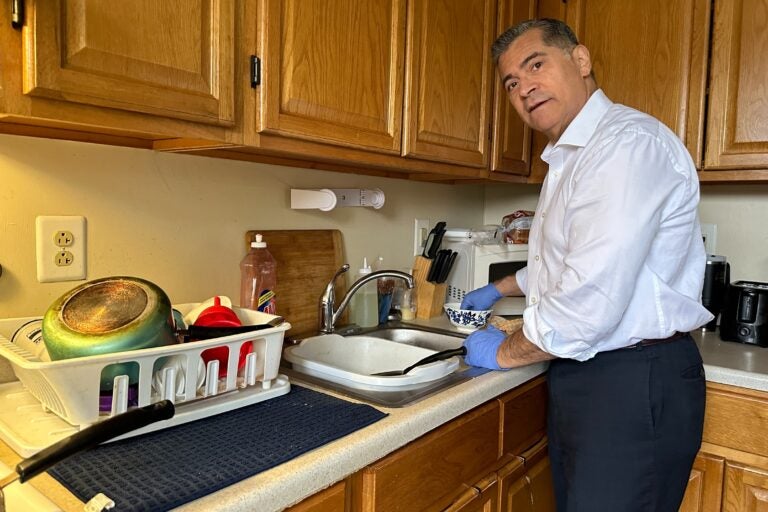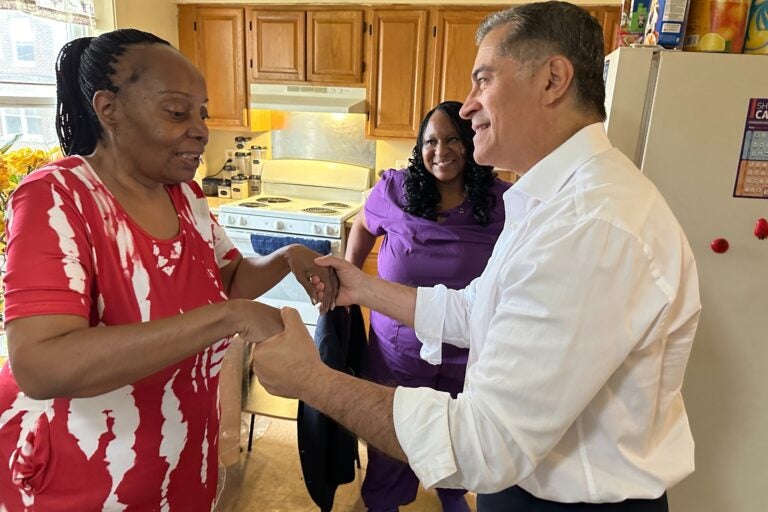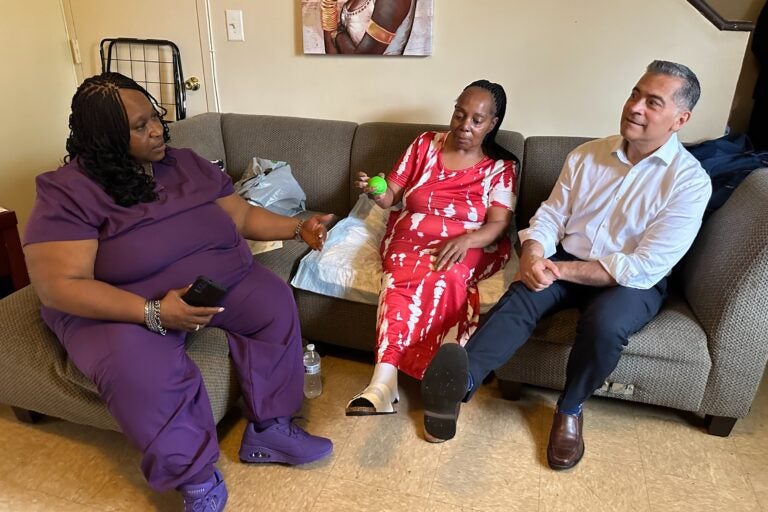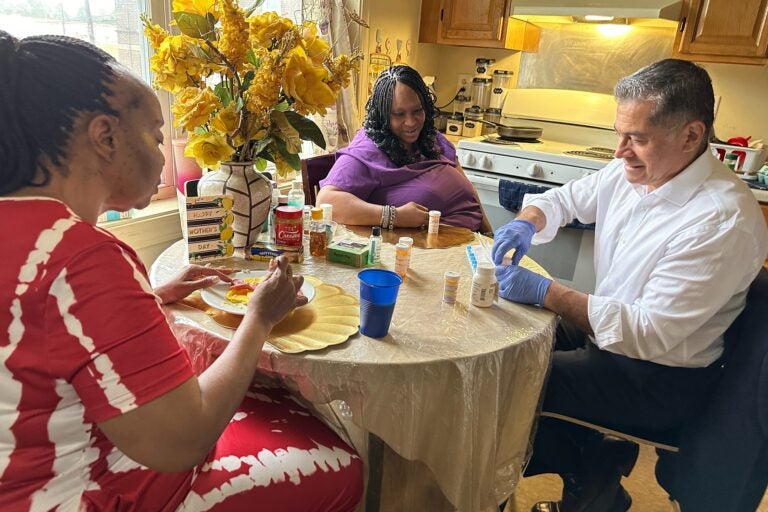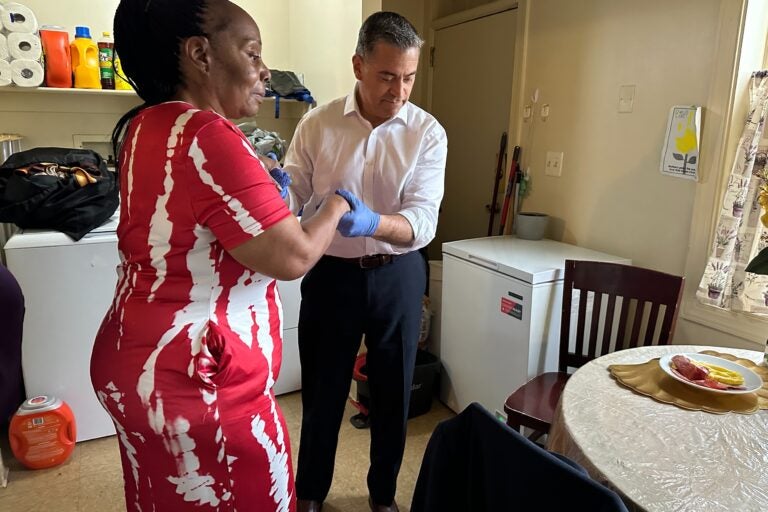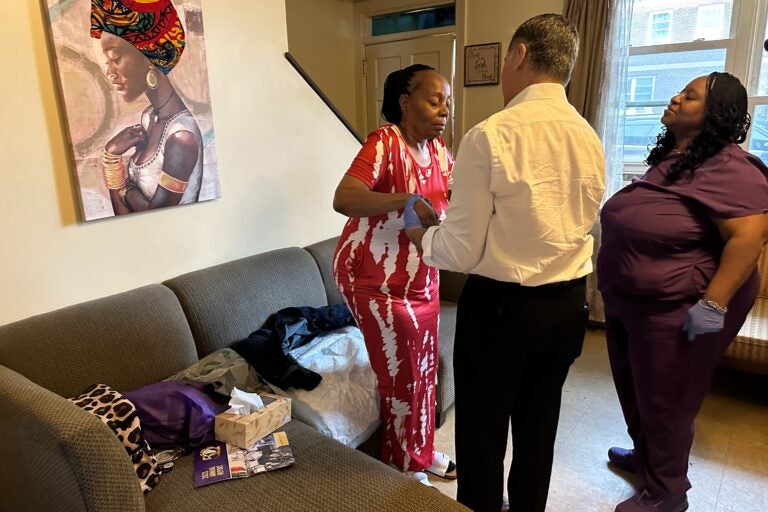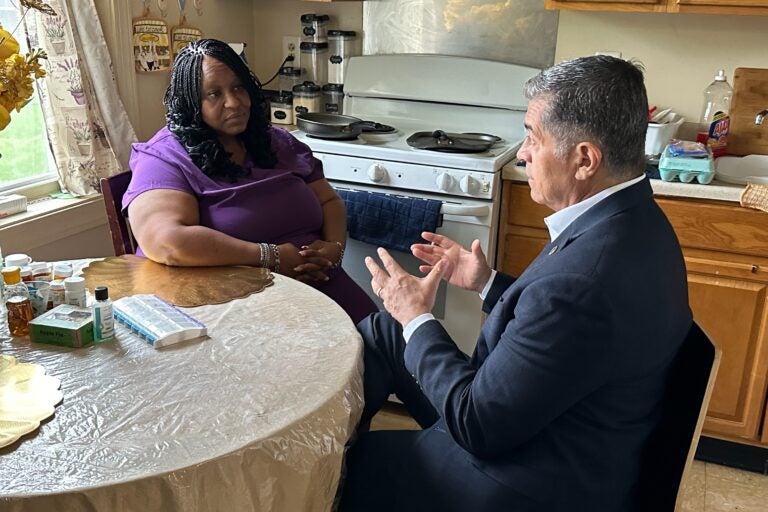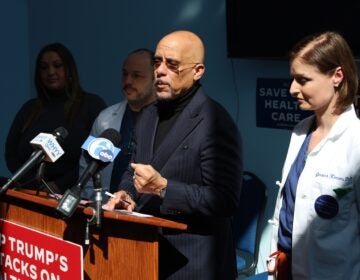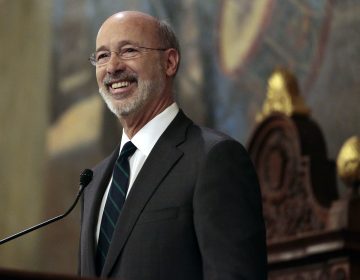Xavier Becerra spends time with a Pa. home health care aide to promote higher wages for caregivers
The secretary of Health and Human Services visited a home health care worker in North Philly. The White House wants more Medicaid funds to go directly to caregivers.
Listen 3:57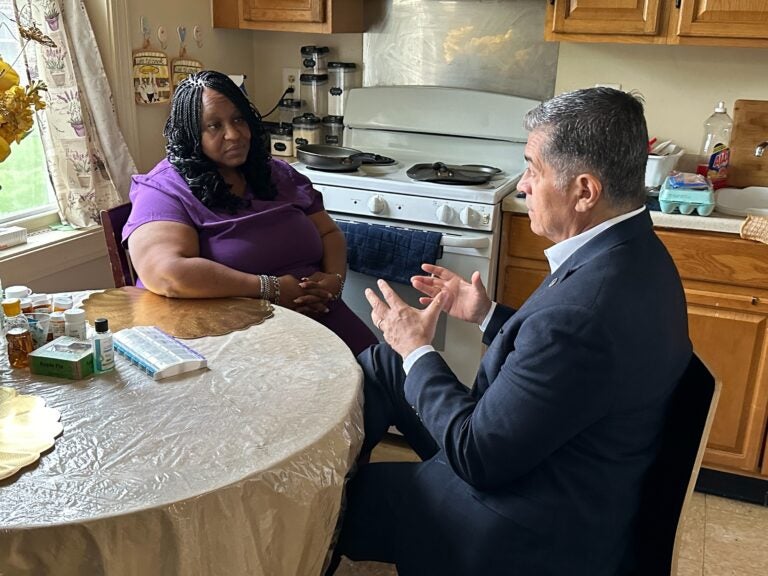
HHS Secretary Xavier Becerra talks with Lolita Owens, a home health care aide, during a visit to North Philly. (Carmen Russell-Sluchansky)
From Philly and the Pa. suburbs to South Jersey and Delaware, what would you like WHYY News to cover? Let us know!
On a drizzly spring morning, Secretary of Health and Human Services Xavier Becerra arrived at the North Philadelphia home of Katrina Francis, a stroke victim who requires around-the-clock care. Before long, he was in the kitchen making eggs.
“It’s not going to look like a neat little omelet, now,” he said.
“That’s okay,” answered Lolita Owens, a home health care aide.
“We can start that bacon now,” Becerra said.
“Yes, she likes about three pieces,” Owens responded.
Owens is Francis’ primary caregiver. She works seven days a week, usually arriving at 10 a.m. and working well into the night. She never takes a vacation.
“People say all the time, ‘When you need to take a couple of days off …’” she told Becerra. “I’ll be like, ‘I can’t afford to.’ I’ve got bills to pay and things to do. Sometimes it doesn’t all add up with the paycheck.”
Home health care workers such as Owens typically watch, wash and prepare meals and medications for the people in their care — usually the elderly or disabled who need help with everyday tasks and require 24-hour supervision.
Despite the long hours and strenuous work, home health care aides are paid an average of $13.40 an hour, according to SEIU Healthcare Pennsylvania, a labor union. The low pay translates into a lack of interest in the profession.
“Here in Pennsylvania, there’s only one home care worker for every six people who need care at home,” said Matthew Yarnell, president of SEIU Healthcare Pennsylvania and the SEIU Long-Term Care Council.
Given that Medicaid pays for much of the funding for home health care, Becerra and the Biden administration hope that a new Centers for Medicare and Medicaid rule will rectify the worker shortage by bringing more people into the profession. The Ensuring Access to Medicaid Services rule — known simply as the “Access Rule” — requires 80% of Medicaid funds from the Home and Community-Based Services (HCBS) program to go to the employees themselves rather than the companies that employ them.
Not surprisingly, employers oppose the proposal. Mia Haney, chief executive officer at Pennsylvania Homecare Association, agrees that more could be done to help caregivers but adds the rule will “disparately disadvantage small business and rural providers.”
The 80/20 provision “arbitrarily sets a nationwide percentage for direct wages that does not account for the inherent differences that exist by geography and patient population in home care service delivery,” she said. “Our focus should be on appropriate reimbursement for HCBS to support a skilled workforce that has prioritized patient health outcomes and quality of life for recipients.”
Workers and their representatives agree that more funding is necessary, but they say the priority should be on improving the labor supply by paying the workers better. They also point out that the workforce is largely made up of women — particularly women of color — who make “poverty wages” and receive little in benefits.
“By requiring 80% of Medicaid payments go to worker compensation, the Biden-Harris administration is directing our public dollars to where they ought to — funding quality jobs for caregivers who provide the quality care that our communities deserve,” Yarnell said.
Becerra spent just over an hour at Francis’s home doing the work Owens is usually tasked with. After making breakfast, he washed the dishes and then separated Francis’ medications. He then helped Francis back to the living room for her physical therapy.
“Not just anybody can walk in and do everything you do,” Becerra told Owens before he left. “Whether it’s cook, care, bathe — it’s time we started to recognize it as a profession. So I think that’s the biggest effort right now is to make sure that you and others like you are willing to go into this work.”
“Thank you for coming out today and seeing what some of us do on a day-to-day basis,” Owens replied. “It’s so important for me to get that message across to our legislators to know we do the hardest work possible in this world.”
WHYY is your source for fact-based, in-depth journalism and information. As a nonprofit organization, we rely on financial support from readers like you. Please give today.



